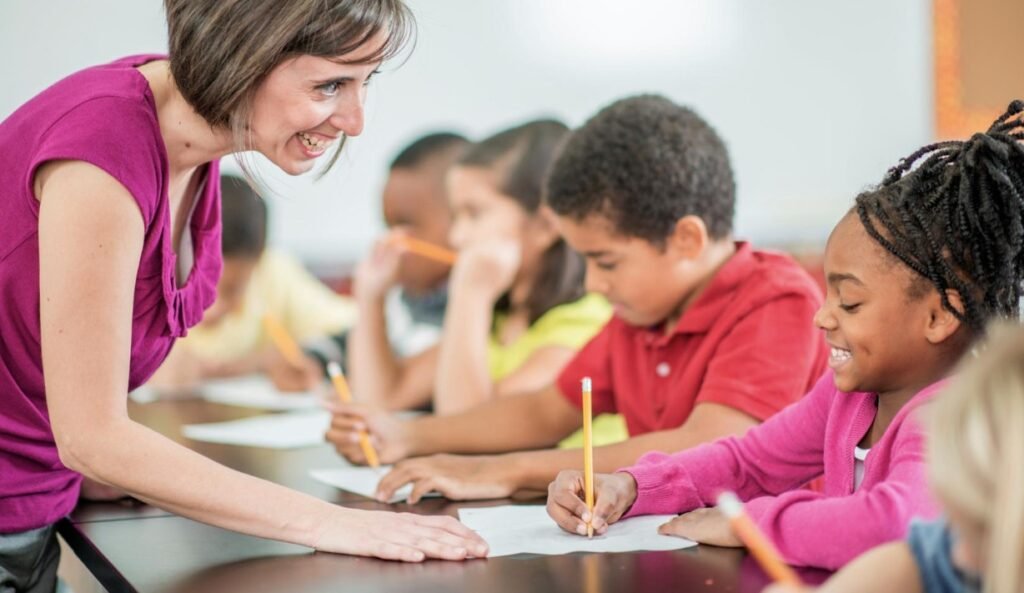Education has always been at the core of human advancement. Yet, for centuries, the one-size-fits-all approach has dominated traditional learning models. This method, while effective for some, often leaves many students struggling to keep up or disengaged because it fails to account for individual learning abilities, interests, and needs. Personalized learning is now disrupting this norm, promising to reshape education systems globally. This innovative model focuses on tailoring educational experiences to the uniqueness of each learner, providing a dynamic pathway to success.
What Is Personalized Learning?
At its essence, personalized learning is an educational approach that adapts curriculum, pace, and methods based on the unique needs of individual students. Rather than expecting all students to learn the same content in the same way at the same time, personalized learning offers flexibility. Students gain greater control over their learning outcomes, allowing for an experience that aligns with their strengths, weaknesses, and learning styles.
This concept often integrates technology to analyze a student’s performance and suggest customized lessons or exercises targeted toward improvement. For example, an advanced learner in mathematics can focus on higher-level problem-solving tasks, while a student struggling with the basics can receive targeted support and resources to strengthen their foundation.
The Role of Technology in Personalized Learning
Modern advancements in technology, particularly artificial intelligence (AI), have been instrumental in the rise of personalized learning. Intelligent learning platforms can assess student progress, identify areas of difficulty, and automatically generate a roadmap for mastery using algorithms designed for adaptive learning.
Take, for example, applications like Khan Academy, which provides personalized dashboards for students. These dashboards enable learners to track their progress, set achievable goals, and access curated resources tailored to their performance. Similarly, tools like Duolingo adapt in real-time to teach languages at the learner’s pace, ensuring no student feels overwhelmed or under-stimulated.
However, personalized learning isn’t solely dependent on technology. Teachers still play a critical role by delivering tailored instruction, mentoring students, and ensuring that human connection remains a core element of education. When combined with technology, educators have a greater capacity to focus on aspects of learning that require empathy, communication, and adaptability.
Benefits of Personalized Learning
1. Empowering Student Agency
One of the most prominent benefits of personalized learning is the empowerment of students to take charge of their educational journeys. Having autonomy over what, when, and how they learn cultivates self-discipline, goal-setting skills, and intrinsic motivation – qualities which are key for lifelong success.
2. Addressing Learning Gaps
Traditional classrooms often move at a pace that caters to the majority, inadvertently leaving some students behind. Personalized learning tackles this issue by identifying gaps in knowledge and addressing them with customized content, reducing disparities in learning outcomes.
3. Encouraging Lifelong Learning
By prioritizing the needs and preferences of learners, personalized education fosters curiosity and a love for learning. These experiences often lead individuals to pursue topics of personal interest, equipping them with a mindset that values continuous development.
4. Improving Teacher Effectiveness
Personalized learning tools can free teachers from administrative burdens, such as grading or lesson planning, enabling them to focus on creating impactful, one-on-one teaching experiences. Additionally, data analytics equips educators with insights into student performance, helping them implement effective teaching strategies.
5. Inclusivity in Education
Personalized learning inherently promotes inclusivity by accommodating learners with diverse needs, including students with disabilities, non-native language speakers, or those from underprivileged backgrounds. By addressing varying starting points and learning preferences, this model can reduce inequalities in education.
Challenges to Address
Despite its promise, personalized learning presents challenges that educators, policymakers, and institutions must address.
1. Access to Technology
One major obstacle is the digital divide. Not all students have equal access to the technology required for personalized learning. Reliable internet connections, devices, and hardware remain a privilege in many parts of the world. Bridging this gap is critical to ensuring that personalized learning benefits everyone.
2. Over-Reliance on Algorithms
While AI technologies are central to personalized learning, over-reliance on algorithms could lead to oversights. Machines may fail to account for the nuanced emotional, social, and cultural factors that influence learning. A balance between technological tools and human intervention is crucial for holistic learning experiences.
3. Teacher Training
Educators need adequate training and tools to implement personalized learning effectively. Without proper guidance, navigating new technologies, designing customized curricula, and managing diverse classroom dynamics can become overwhelming for teachers.
Examples of Successful Personalized Learning Initiatives
Several educational institutions and ventures are already seeing success with personalized learning strategies worldwide.
- Summit Public Schools in the United States have pioneered personalized learning models where students work through customized playlists of content. The teacher’s role is reimagined to focus on mentoring and supporting students’ goals.
- Organizations such as AltSchool, founded by former Google employees, leverage technology to develop individual learning roadmaps tailored to each student in their classrooms.
- Large-scale platforms like Coursera and edX offer massive open online courses (MOOCs) that allow learners worldwide to customize their pace and focus on specific interests, making education accessible and customized.
The Future of Personalized Learning
Personalized learning holds immense potential to redefine education as we know it. Schools and institutions adopting this approach are preparing students to thrive in an increasingly knowledge-driven world. The key, however, lies in ensuring equal access for all learners, prioritizing teacher development, and maintaining the human touch in education amidst a digital revolution.
With continuous advancements in AI and the growing recognition of diverse learning needs, personalized learning will undoubtedly emerge as a critical component of future educational systems. Its ability to cater to individual students’ aspirations and abilities positions it as a promising solution for an inclusive, empowering, and effective education for all.
For more in-depth information about successful personalized learning programs, visit EdSurge or Education Week to explore case studies and expert insights.


